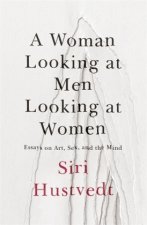
Kód: 04535910
Adaptive Preferences and Women's Empowerment
Autor Serene J. Khader
Women and other oppressed and deprived people sometimes collude with the forces that perpetuate injustice against them. Women's acceptance of their lesser claim on household resources like food, their positive attitudes toward cli ... celý popis
- Jazyk:
 Angličtina
Angličtina - Vazba: Brožovaná
- Počet stran: 264
Nakladatelství: Oxford University Press Inc, 2011
- Více informací o knize

Mohlo by se vám také líbit
-

Fox
208 Kč -

Elements of the Differential and integral Calculus ...
847 Kč -

Confessions of an Expat
529 Kč -

Quilts - Their Story And How To Make Them
1123 Kč -

When the Bronx Burned
347 Kč -

Be Holy and Come Near
441 Kč
Darujte tuto knihu ještě dnes
- Objednejte knihu a zvolte Zaslat jako dárek.
- Obratem obdržíte darovací poukaz na knihu, který můžete ihned předat obdarovanému.
- Knihu zašleme na adresu obdarovaného, o nic se nestaráte.
Více informací o knize Adaptive Preferences and Women's Empowerment
Nákupem získáte 152 bodů
 Anotace knihy
Anotace knihy
Women and other oppressed and deprived people sometimes collude with the forces that perpetuate injustice against them. Women's acceptance of their lesser claim on household resources like food, their positive attitudes toward clitoridectemy and infibulations, their acquiescence to violence at the hands of their husbands, and their sometimes fatalistic attitudes toward their own poverty or suffering are all examples of "adaptive preferences," wherein women participate in their own deprivation. Adaptive Preferences and Women's Empowerment offers a definition of adaptive preference and a moral framework for responding to adaptive preferences in development practice. Khader defines adaptive preferences as deficits in the capacity to lead a flourishing human life that are causally related to deprivation and argues that public institutions should conduct deliberative interventions to transform the adaptive preferences of deprived people. She insists that people with adaptive preferences can experience value distortion, but she explains how this fact does not undermine those people's claim to participate in designing development interventions that determine the course of their lives. Khader claims that adaptive preference identification requires a commitment to moral universalism, but this commitment need not be incompatible with a respect for culturally variant conceptions of the good. She illustrates her arguments with examples from real-world development practice. Khader's deliberative perfectionist approach moves us beyond apparent impasses in the debates about internalized oppression and autonomous agency, relativism and universalism, and feminism and multiculturalism.
 Parametry knihy
Parametry knihy
Zařazení knihy Knihy v angličtině Society & social sciences Society & culture: general Social groups
1517 Kč
- Plný název: Adaptive Preferences and Women's Empowerment
- Autor: Serene J. Khader
- Jazyk:
 Angličtina
Angličtina - Vazba: Brožovaná
- Počet stran: 264
- EAN: 9780199777877
- ISBN: 019977787X
- ID: 04535910
- Nakladatelství: Oxford University Press Inc
- Hmotnost: 410 g
- Rozměry: 235 × 157 × 17 mm
- Datum vydání: 13. October 2011
Oblíbené z jiného soudku
-

Women Who Run with the Wolves
199 Kč -

Women Who Run With The Wolves
386 Kč -

Second Sex
400 Kč -

The Way of Men
332 Kč -

The Velvet Rage
416 Kč -

Why Does He Do That?
405 Kč -

Letters to a Young Muslim
283 Kč -

Woman Looking at Men Looking at Women
337 Kč -

Male Brain
283 Kč -

Humans of New York
601 Kč -

Black Elk Speaks
513 Kč -

Raising Kanye
400 Kč -

Triumph of the City
298 Kč -

Lost Keys of Freemasonry
245 Kč -

Witches, Witch-hunting, And Women
321 Kč -

Sioux Chef's Indigenous Kitchen
817 Kč -

By Any Means Necessary
326 Kč -

North American Indians
379 Kč -

NATIVE AMERICAN MYTHS
458 Kč -

Maimonides-Essential Teachings on Jewish Faith & Ethics
406 Kč -

Dona Gracia of the House of Nasi
585 Kč -

Dark Emu
382 Kč -

Duke of Naxos of the House of Nasi
585 Kč -

Beginner's Ladino with Online Audio
434 Kč -

Navajo Coyote Tales
405 Kč -

The Politically Incorrect Guide to Jihad
457 Kč -

Manipulated Man
314 Kč -

Think Like a Monk
415 Kč -

The Mastery of Love
306 Kč -

Iron John
395 Kč -

Hillbilly Elegy
316 Kč -

Goddesses in Everywoman
283 Kč -

Who Cooked the Last Supper?
429 Kč -

The Autobiography of Malcolm X
222 Kč -

When God Was A Woman
498 Kč -

Lean In
337 Kč -

Gender Trouble
640 Kč -

Zami
269 Kč -

Tom of Finland. The Complete Kake Comics
456 Kč -

Desert Flower
269 Kč -

Uncle Tom's Cabin
109 Kč -

Indigenous Peoples' History of the United States
366 Kč -

Deepest Well
421 Kč -

Like She Owns the Place
445 Kč -

Hillbilly Elegy
526 Kč -

Autobiography of Malcolm X
269 Kč -

Native American Clothing
1390 Kč -

Nice Girls Don't Get The Corner Office
259 Kč -

The Male Nude
456 Kč
Osobní odběr Praha, Brno a 12903 dalších
Copyright ©2008-24 nejlevnejsi-knihy.cz Všechna práva vyhrazenaSoukromíCookies



 Vrácení do měsíce
Vrácení do měsíce 571 999 099 (8-15.30h)
571 999 099 (8-15.30h)